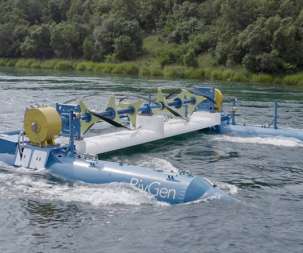DOE awarding $35M to 11 projects for hydrokinetic turbine development; ARPA-E SHARKS
Green Car Congress
NOVEMBER 25, 2020
Projects will work to reduce the LCOE through multiple approaches, including increasing generation efficiency, increasing rotor area per unit of equivalent mass, lowering operation and maintenance costs, minimizing potential impacts on the surrounding environment, and maximizing system reliability. University of Washington. SRI International.













Let's personalize your content